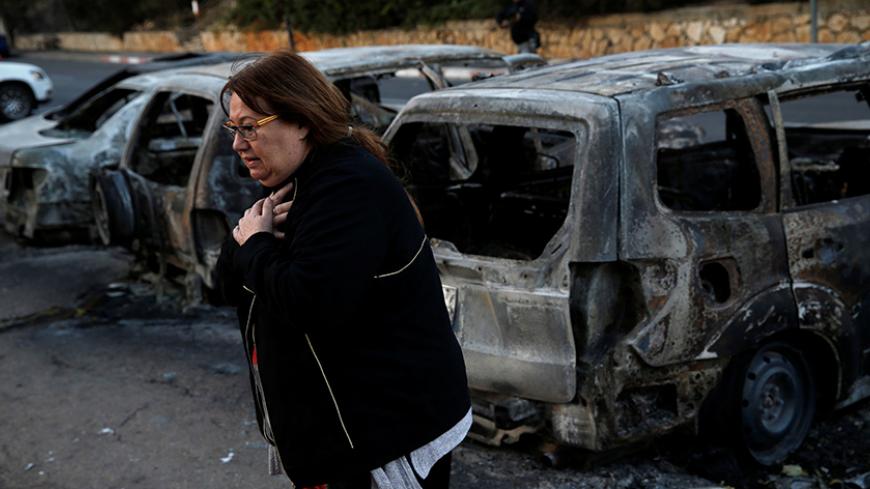Israel has experienced many forms of terror in the past: the rock and Molotov cocktail intifada (1987-1993), and the suicide bomb and shooting attack intifada (2000-2005), followed by roadside charges, abduction of soldiers, use of missiles and recently the individual intifada that broke out in October 2015 and mainly involved knife attacks. But an arsonist intifada — terror focused on igniting fires — is something that had not been experienced before.
From information gathered so far it seems that the wave of fires that Israel witnessed in the third week of November was to a large extent premeditated and related to Palestinian nationalism. This fire wave was facilitated by extreme weather conditions: a winter that has not yet begun; rain that has not yet made an appearance; dry and flammable shrubbery; and especially dry eastern winds that stir up the fires. With such conditions, only one spark is needed to set an entire forest on fire, or even a large city. And in many instances, the arsonists acted on their own initiative. It was a miracle that no lives were lost. Israel used dozens of firefighting aircraft from nearby and remote countries, including the famous "Supertanker" from the United States, at great expense. It is clear that next time it could be a lot worse.



